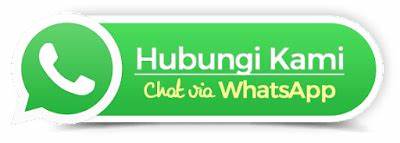The Effect of Digital Storytelling on Student Engagement and Literacy Skills
Keywords:
Digital Storytelling, Student Engagement, Literacy Skills, Learning, Educational TechnologyAbstract
This study aims to determine the influence of digital storytelling on student engagement and their literacy skills. Digital storytelling, which combines narrative elements with multimedia technology, is expected to improve students' learning experience and enrich literacy skills, both in reading, writing, and critical thinking. In the context of education that is increasingly connected to technology, this approach is considered relevant to increase student motivation and participation in learning. This study uses a quantitative method with a pseudo-experimental design. The research sample consisted of students from several high schools divided into two groups: an experimental group that used digital storytelling in learning and a control group that used traditional methods. Data was collected through student engagement questionnaires and literacy skills tests adapted from the applicable curriculum. The data analysis technique uses a t-test to see the difference between the experimental group and the control group. The results showed that there was a significant increase in student engagement and literacy skills in the experimental group that used digital storytelling. Students who are involved in digital storytelling-based learning show higher motivation in following the learning process and better literacy skills, especially in the aspects of text comprehension and writing creativity. In contrast, the control group that used conventional methods did not show significant changes in both aspects. Based on these results, it can be concluded that digital storytelling has a positive influence on student engagement and their literacy skills. Therefore, the application of digital storytelling in learning can be one of the innovative alternatives to improve the quality of education in this digital era.
References
A. Fathoni, B. Prasodjo, W. Jhon, and D. M. Zulqadri, “Media dan Pendekatan Pembelajaran di Era Digital: Hakikat, Model Pengembangan & Inovasi Media Pembelajaran Digital,” 2023.
A. Zahra, A. Asnimar, S. Srirarasati, and L. Yenny, “Pemanfaatan media videoscribe-sparkol untuk meningkatkan budaya literasi guru dan peserta didik,” in Seminar Nasional Pendidikan Bahasa Indonesia, 2017.
M. P. Denny, I. R. Mutiaz, and A. B. Sriwarno, “Transformasi Cara Penuturan Cerita dalam Bentuk Aplikasi Digital Storytelling sebagai Media Pengenalan Kembali Legenda ‘Calon Arang,’” Jurnal Desain Komunikasi Visual Nirmana, vol. 15, no. 1, pp. 1–12, 2013.
N. A. Shalehah, “Studi Literatur: Konsep kurikulum merdeka pada satuan pendidikan anak usia dini,” Jurnal Ilmiah Cahaya Paud, vol. 5, no. 1, pp. 70–81, 2023.
S. Suryatina, “IMPLEMENTASI KEGIATAN LITERASI PAGI SERTA DAMPAKNYA TERHADAP PENINGKATAN KETERAMPILAN MEMBACA SISWA SDN 08 PEMULUTAN BARAT,” Jurnal Multidisipliner Bharasumba, vol. 3, no. 04, pp. 117–130, 2024.
A. Asari et al., “Komunikasi Digital,” 2023, Penerbit Lakeisha.
D. Junianto and W. Wagiran, “Pengaruh kinerja mengajar guru, keterlibatan orang tua, aktualisasi diri dan motivasi berprestasi terhadap prestasi,” Jurnal Pendidikan Vokasi, vol. 3, no. 3, pp. 307–319, 2013.
M. Anggraeni and M. Mukhlis, “Asesmen kompetensi minimum literasi membaca siswa di sd negeri 09 merangkai,” Jurnal Onoma: Pendidikan, Bahasa, dan Sastra, vol. 9, no. 1, pp. 313–325, 2023.













